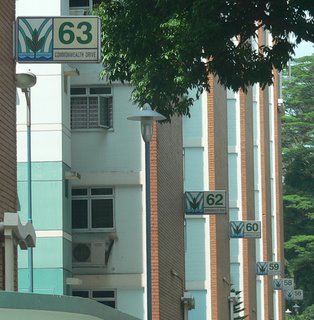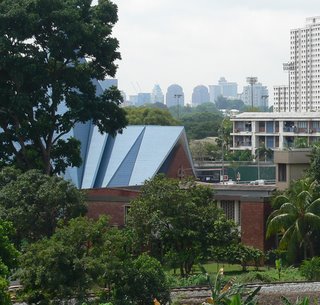At his swearing-in ceremony on May 30, PM Lee Hsien Loong gave an outline of what he saw as the challenges for Singapore and what his government would do to meet them. His speech, available on the Internet
here, can be seen as a summary of promises to be delivered, post GE 2006.
It was overall a non-partisan speech of which deserves the support of the people in what it aims to do. But some of what he said caught my attention and started me thinking.
He noted that Singaporeans had endorsed the PAP’s vision for Singapore, which included:
“To be an inclusive society, where Singaporeans of all races and religions, young and old, at home and overseas play a part in shaping our nation’s future.’’
Later in the speech, he said:
“We will help elderly citizens and lower income households, and address concerns over healthcare costs and the cost of living.”Further in the speech, he said:
“My Government will use our mandate to serve all Singaporeans. In doing so, we are fulfilling our duty to Singapore, not exercising a right or a privilege. We govern Singapore in trust, on behalf of all Singaporeans, as well as of future generations.
“We must maintain unity and trust between the leadership and the people, between those who support the Government and its policies and those who prefer something different.
“Many of those who voted for the opposition in fact want a PAP government, but I respect their choice. Moving ahead, my team and I will strive to deliver on our promises, and work to win the confidence and support of all Singaporeans.”With GE 2006 still so fresh in my mind, I could not help wondering what all this meant and how to interpret it, and how it would be realised over the next five years.
The vision of inclusive society, for instance, specifically mentions Singaporeans abroad, but not the probably bigger group who did not vote PAP. This group gets mentioned later but, here, we see only the very basics of an inclusive society – people regardless of race, gender, religion and age – as it is now. It progresses little. Missing are those whose views differ from the PAP’s, for instance. How will they figure in this inclusive society?
We will have to wait and see.
Reading the lines that promise service to all Singaporeans and the elderly made me think of lifts on every floor for the elderly in Opposition constituencies. Here is a syllogistic deduction:
The PAP will serve all Singaporeans.
Singaporeans include the elderly.
The elderly include those who live in Opposition constituencies.
Therefore the PAP will serve the elderly who live in Opposition constituencies.
The PAP has already admitted that upgrading does not work any more as an election tool. One exit strategy would be to score some points by giving it to Hougang and Potong Pasir closer to GE 2011. The positive spin: “We do look after all Singaporeans, opposition Constituencies included.”
Meanwhile, the Worker’s Party chief and Hougang MP Low Thia Khiang, will no doubt be reminding the PAP in Parliament about its own stance that the elderly in his Constituency need help. The prospects look good. But will they get the facilities they need?
We will have to wait and see.
A politician who wins in an election usually has something to say to those who did not vote for him. He never retaliates. Rather, he will say things such as that he will try to understand these voters better, find out why they are unhappy, that he will “engage” such voters.
What I’ve never heard a winning politician say is that he will listen to this group of people, and ensure that at least some of what they want will be delivered, even if they are in the minority, while delivering to the majority who voted for him.
PM Lee rises above partisan politics when he says the PAP will
“maintain unity and trust between the leadership and the people, between those who support the Government and its policies and those who prefer something different”.How is this unity and trust going to be forged? Will the opposition parties be invited to send contingents to march at the National Day Parade, as PAP contingents have marched before?
We will have to wait and see.
What does it mean, when one says
“many of those who voted for the opposition in fact want a PAP government”? Does it mean that those who voted against one actually voted for one, and that one can ignore the vote against one? What to make of the probability that many of the people who voted PAP didn’t agree with its treatment of James Gomez, and didn’t agree with using upgrading as an election tool? This part of PM Lee’s response in not clear.
The second part of what he said, that the PAP government will
“work to win the confidence and support of all Singaporeans” falls in line with the standard responses made by politicians. It does not mean that the PAP will listen and change its views. Rather it usually means trying to get those who disagree to change their views.
I may be wrong. I hope I am wrong and that, now, it will be different.
We will have to wait and see.

 The blocks were still there, but had been upgraded and looked very different. The open field behind Block 63 had been replaced with a communal structure. The church was still there but it, too, had sprouted additional structures around it.
The blocks were still there, but had been upgraded and looked very different. The open field behind Block 63 had been replaced with a communal structure. The church was still there but it, too, had sprouted additional structures around it.